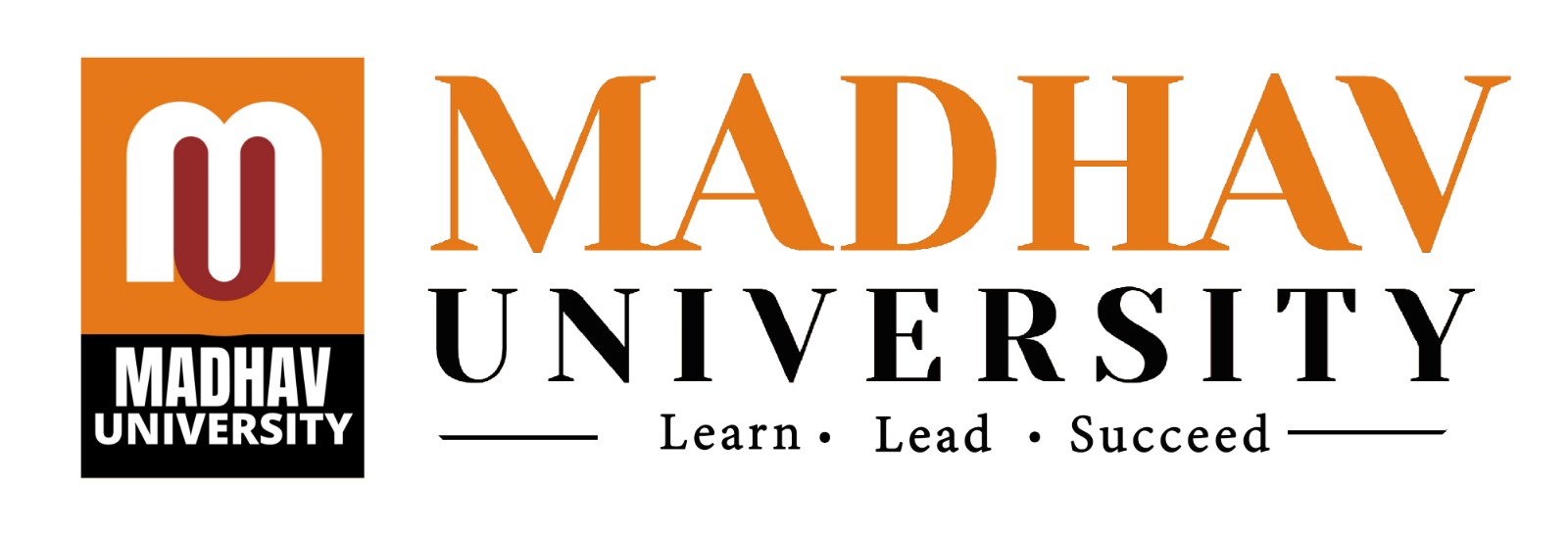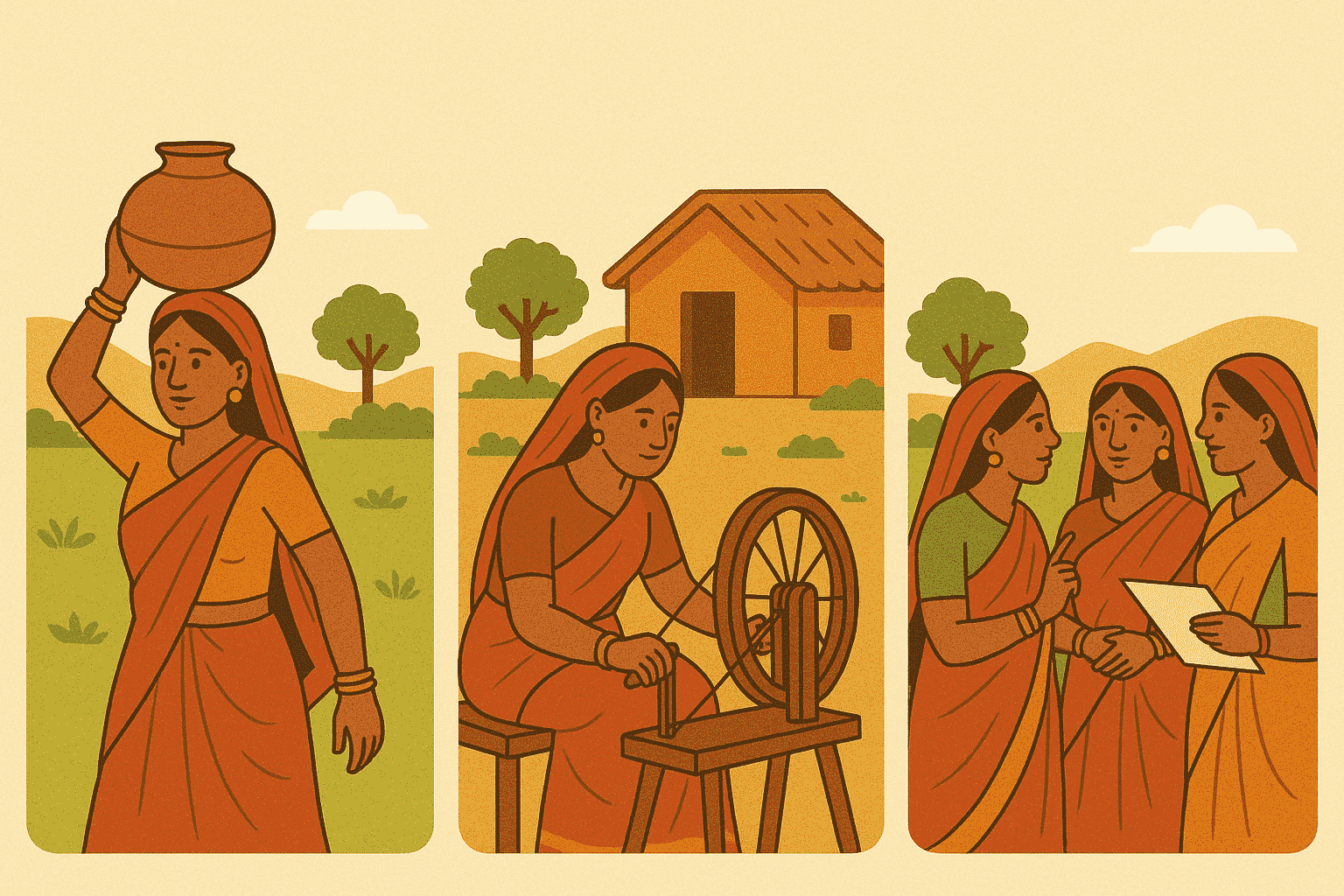The evolution of tribal communities in India reflects a significant transformation, as once-isolated societies in distant rural locales are now embracing education for their youth and achieving improved living conditions. It is noteworthy that, in addition to various governmental initiatives, the role of non-governmental organisations in facilitating training and development across diverse economic sectors, particularly for the tribal population, is significant. The condition of women within a society serves as a profound indicator of the prevailing standards of social equity therein. The status of women is frequently articulated through various dimensions, including income, employment, education, health, and fertility, alongside their roles within familial, communal, and societal contexts. Within tribal communities, the significance and impact of women are profound and essential. The active involvement of women is crucial for the swift advancement of socio-economic conditions within any community.
Ensuring participation within Indian society necessitates the implementation of concrete measures across multiple levels, ultimately leading to genuine empowerment. The advancement of women’s status is intricately linked to the notion of empowerment, reflecting a transformative journey towards equality and recognition. Empowerment encompasses elevated literacy rates, enhanced educational opportunities, improved healthcare access, equitable ownership of productive assets, and greater involvement in economic and commercial activities. It fosters awareness of rights and responsibilities, elevates living standards, and nurtures self-reliance, self-esteem, and self-confidence. Elevating the position of tribal women transcends mere ethical considerations; it embodies a strategic necessity.
Indian tribal development has come a long way, with once marginalised rural populations putting an emphasis on education and raising their level of living. Noteworthy, alongside a number of government programs, non-governmental organisations (NGOs) play a crucial role in providing training and development in a variety of economic areas, especially for indigenous communities. One key measure of a society’s level of social fairness is the status of women within it. Income, work, education, health, fertility, and women’s roles within the family, community, and society as a whole are some of the many elements that define women’s status. Women are extremely important in indigenous communities. For any society to see quick socio-economic growth, it is essential that women actively participate. Making sure they are involved in Indian society through multi-level, concrete initiatives that empower them is crucial.
The idea of women’s advancement has evolved in tandem with movements to raise their status. A more empowered society is one in which more people are literate, have better access to healthcare, possess productive resources fairly, and are actively involved in economic and commercial activity. Improving living standards, raising levels of self-reliance, self-esteem, and confidence, and raising levels of understanding of rights and duties are all part of it. Advancing the status of indigenous women is crucial from a strategic and ethical perspective.
The position of women has a substantial impact on the degree of social fairness in a society. Many people’s conceptions of women’s status are based on the fact that they are expected to shoulder more of the financial, occupational, educational, and medical burdens in their homes, neighbourhoods, and communities. Socioeconomic growth is the best indicator of a community’s quality of life. If we want to raise living standards, spur economic growth, and guarantee social fairness, we must ensure that social and economic services are distributed fairly. The plan for tribal development has to be improved, developed, and lifted up if it is to help women gain authority. Achieving socio-economic empowerment for marginalised groups requires both the state and civil society to create a socio-political space for these groups and the ongoing battle and resistance to free them from man-made bonds.
Additionally, it represents the fulfilment of the hopes and dreams of under-represented groups for a society free from the injustices that threaten their economic, social, and political security. Socioeconomic empowerment is also linked to issues of quality, liberty, and fraternity. As a result, reducing inequality and promoting the holistic development of indigenous women requires a strong push for their socioeconomic empowerment.
Constitutional Provisions related to Tribal Women:
The Indian constitution provides several safeguards for tribal women, including the following: Article 14 guarantees equality before the law to all citizens, including indigenous women. In Article 15 of the Constitution, it is stated that “discrimination based on sex, religion and other factors” is banned. According to Article 330 of the Constitution, there are seats allotted for Scheduled Tribes in the Lok Sabha. Article 332 of the Constitution states that each state’s legislative assembly has a certain number of seats reserved for members of Scheduled Tribes.
That section of the Indian constitution known as “The Scheduled and Tribal Areas” Among its components are articles 244 and 244A. “Administration of Scheduled Areas and Tribal Areas” is the title of Article 244. In sub-clause (2) of article 244, the term “applicability of sixth schedule to the administration of the tribal areas in the States of Assam, Meghalaya, Mizoram and Tripura” is defined. In paragraph 244(1), “the administration and control of the scheduled areas and scheduled tribes in any other State shall be subject to the fifth schedule.” Health, employment, education, and decision-making ability mostly determine an individual’s or group’s social status.
Social and Economic Status of Tribal Women:
An important indicator of a society’s degree of social fairness is the position of women within it. Income, work, education, health, fertility, and women’s responsibilities within families, communities, and society are common ways that women’s status is defined. Women play an important and significant role in tribal communities. Women in tribal societies are more valuable than in other social groupings, while making up half of the population, due to the fact that they put in greater hours and are responsible for running the household and the family business.
Women maintained a key position in the tribal economy even after commercialisation and industrialisation had swept across it. Women and children undertake the majority of the collecting for small forest products. To supplement their family’s income, many additionally work as domestic workers, construction labourers, or industrial labourers. Tribal people are more genuine and trustworthy than non-tribal people, even though contractors and supervisors take advantage of them.
Challenges faced by Tribal Women
The majority of tribal peoples have a long way to go before they can raise their social standing. The tribal peoples livelihoods are not permanent nor fixed, according to many literature of research, even though tribal women are more likely to work than scheduled caste and general population. A large portion of their population lives in poverty since they do not have stable employment. Rural indigenous communities meet their most fundamental requirements through a wide range of low-level occupations. Agricultural work occupies the majority of their time. Beyond that, they tend to pastoral duties, engage in handicrafts, and occasionally work as industrial labourers. Agricultural work is common among tribal women, but they are not often involved in any form of manual labour.
Strategies to improving the lot of India’s Tribal Women:
As previously mentioned, tribal women confront significant challenges due to poor economic activity and living situations that fall below the poverty line. Supporting women in establishing self-help groups through education and training is one realistic approach to addressing this issue. It is possible to raise awareness by working to give these women more agency. One way to help people become self-sufficient and find work is for non-governmental organisations (NGOs) to step up and offer the trainings they need. With proper financial support and public education, indigenous children will have the opportunity to attend school, laying the groundwork for a prosperous future. Getting a good education will allow them to be ready for their lives after this one. Highlighting the importance of education and inspiring tribal children to pursue it is crucial. They will be able to make better decisions and earn more money in the process.
Conclusion:
It can be concluded that the tribal constitutional protections and laws, tribal women still lag behind and confront many problems. India needs tribal development, the survey said.
For systematic tribal development, their low economic activity, social backwardness, literacy, and health are crucial. Even if they work hard and help the family financially, they remain poor since no meaningful steps are made to help them. A lot of progress has been made in developing the Scheduled Tribe population during plan periods, but more has to be done. Families must earn enough to escape poverty. Since economic position affects other parts of life and living situations, it is crucial. Development requires tribal women’s education. Education helps tribal women modify their traditional norms, worldview, and economic independence. This would enable people organise, analyse their living conditions, and understand their rights and duties.
Education greatly affects the scheduled tribe’s social and economic status. Women who are educated can better handle modern culture. Today, modern society and culture influence everyone. The government heavily funds tribal education. This increases literacy and promotes proper growth. To determine tribal health awareness, their health state is examined. Essential nutrients are sometimes lacking. Lack of hygiene and health knowledge causes many diseases. Increasing the literacy rate and offering gainful job for tribal women can help transform their status in India and overcome obstacles.
– Dr. SURENDRA MEENA, Associate Professor
Faculty of Law Madhav University Sirohi (Rajasthan)

